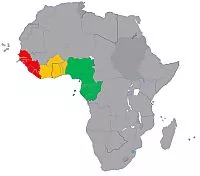On Tuesday (10 January 2017), President of Cote d'Ivoire, Alassane Ouattara, completed the anticipated announcement of his senior government with the confirmation of Amadou Gon Coulibaly as the new prime minister. This follows the election earlier in the week of a new leader of the national assembly and nomination of a vice president. Wednesday afternoon (11 January 2017) saw the announcement of the new cabinet.
- Amadou Gon Coulibaly is one of the names that had been mentioned for the role of prime minister though no real frontrunner had emerged. He is a member of the Rassemblement des republicaines (RDR) party – leading party in the Houphouetist Rally for Democracy and Peace (RHDP) coalition. The RDR is led by Ouattara who has led a long political career holding various offices (both elected and non-elected) since 1995, including more than 15 years as mayor of Korhogo. He is a safe bet for Ouattara: Coulibaly has been loyal to Ouattara since the president was himself PM in the government of Houphouët-Boigny1.
- As soon as the speaker of the national assembly, Guillame Soro, announced on Saturday that he intended to run for a second term, he instantly became the favourite to take the position. He was accordingly re-elected on Monday in a landslide victory over his only rival, Évariste Méambly, MP of Facobly from the Parti Democratique de la Cote d'Ivoire (PDCI), also part of the RHDP coalition.
- On Tuesday, a presidential spokesman confirmed that Ouattara had nominated former PM Daniel Kablan Duncan as his vice president2. This is a new position that was created as part of the new constitution that was adopted at the end of 2016. Duncan is also a member of the PDCI.
- The cabinet also provided some surprises. Some of the key ministries – interior, foreign affairs, justice, defence, education and mines & industry all retain their former ministers. 14 former ministers are now without a portfolio and there are eight new cabinet members. The number of minsters has dropped from 35 to 28 (with one secretary of state). Many of the departing ministers have been excluded due to losing their parliamentary seats though the former Minister for Oil and Energy, Adama Toungara (also mayor of Abobo) has supposedly been punished over the recent energy price increases. He has been replaced by the new entrant, Thierry Tanoh, a close ally of and adviser to Ouattara3. Another key omission is that of Affoussiatta Bamba-Lamine who was Minister of Communications having unceremoniously lost her parliamentary seat.
Outlook
As expected the cabinet is full of RHDP coalition members who will assist Ouattara in pursuing his development in agenda in the coming three years until he stands down in 2020. In the interim, we will see which members of the new administration start posturing for power and eventually launch their own leadership bids.
In another blow to Soro following the dismissal of his loyal general, army chief, General Soumaila Bakayoko on Monday, another ally of his has been left out of government. Bamba-Lamine was spokeswoman for Soro's rebellion in the early 2000s. Also of note is the retention of Minister of Defence, Alain-Richard Donwahi. He is scheduled to resume negotiations with the soldiers responsible for the recent mutiny on Thursday. This is a big vote of confidence from Ouattara that he will not only be able to resolve the disagreement with the disgruntled soldiers but that he will be able to work with the recently reshuffled hierarchy of the armed forces to reduce the risk of further uprisings.
Footnotes
1.http://www.rfi.fr/afrique/20170110-cote-ivoire-amadou-gon-coulibaly-nomme-nouveau-premier-ministre
2.http://news.abidjan.net/h/607569.html
3. http://news.abidjan.net/h/607653.html
The content of this article is intended to provide a general guide to the subject matter. Specialist advice should be sought about your specific circumstances.


